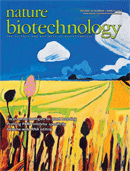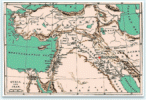Astronomer Diego de la Fuente’s bet on Spanish science funding has paid off. Last week Nature reported that the graduate student from the National Aerospace Technical Institute in Madrid, along with many other provisional winners of mobility grants, was using his own money to fund his research abroad while he waited to hear whether or not Spain’s Ministry of Economy and Competitiveness would come through with the grants. Continue reading Mobility funding catches up to Spanish researchers abroad
All posts by LL
Funding uncertainty strands Spain’s young scientists
Spanish researchers are feeling the budget squeeze — until now restricted to creditors of Spain’s regional governments — as the country scrambles to negotiate a 2012 budget.
Last November, Diego de la Fuente, a graduate student in astronomy at the National Aerospace Technical Institute in Madrid, made a bet. He would gamble travel costs and two months’ living expenses of his own money to visit the United States in March and April this year to work with astronomer Donald F. Figer at the Rochester Institute of Technology in New York. At the time, the bet seemed a safe one: de la Fuente’s name was on a provisional list of mobility-grant winners under the Research Personnel Training programme run by the Ministry of Economy and Competitiveness.
By the first week of January neither de la Fuente nor any of the roughly 1,200 other provisional winners had received confirmation of their grants, according to Pilar Navas-Parejo, a graduate student in geology at the University of Granada and a spokeswoman for the Federation of Young Investigators (FJI)/Precarios advocacy group. Provisional winners of the previous year had their funding confirmed by the end of December — although payments typically arrived later. Continue reading Funding uncertainty strands Spain’s young scientists
BASF moves GM crop research to US
 BASF Plant Science is relocating from its European headquarters to the US, a move prompted by the European public’s hostility to genetically modified (GM) crops, its president Peter Eckes said. The German company is also cancelling the development and commercialization of all projects destined solely for the European market and in future will concentrate on markets in America and Asia. Continue reading BASF moves GM crop research to US
BASF Plant Science is relocating from its European headquarters to the US, a move prompted by the European public’s hostility to genetically modified (GM) crops, its president Peter Eckes said. The German company is also cancelling the development and commercialization of all projects destined solely for the European market and in future will concentrate on markets in America and Asia. Continue reading BASF moves GM crop research to US
A Cold July in Baghdad
 Researchers in Spain are tapping a new database in their search for historic climate patterns: medieval Arab history. Physicist Fernando Domínguez-Castro of the University of Extremadura in Badajoz, Spain, and his colleagues, including a historian of Arab culture, examined references to droughts, floods, and hail in ten Arab sources written between 816 C.E. and 1009 C.E.. One text told of nights during a Baghdad summer that were so cold that residents bundled up inside their homes rather than sleeping on roofs as was the custom, the team reported in Weather. Continue reading A Cold July in Baghdad
Researchers in Spain are tapping a new database in their search for historic climate patterns: medieval Arab history. Physicist Fernando Domínguez-Castro of the University of Extremadura in Badajoz, Spain, and his colleagues, including a historian of Arab culture, examined references to droughts, floods, and hail in ten Arab sources written between 816 C.E. and 1009 C.E.. One text told of nights during a Baghdad summer that were so cold that residents bundled up inside their homes rather than sleeping on roofs as was the custom, the team reported in Weather. Continue reading A Cold July in Baghdad